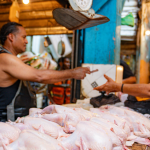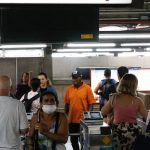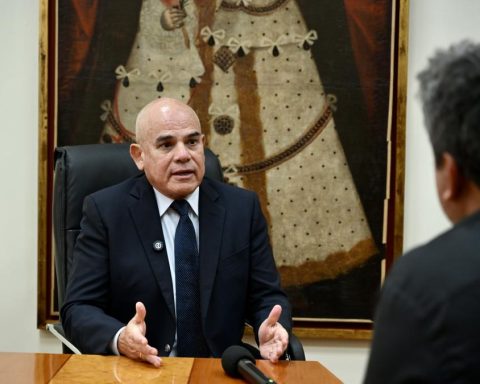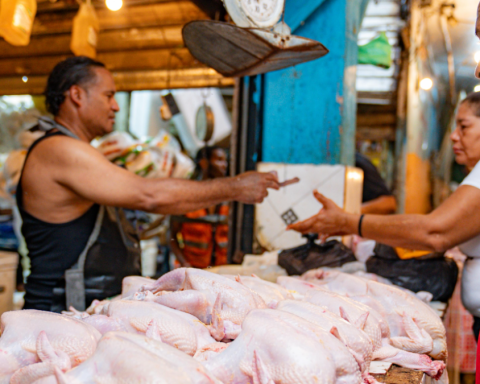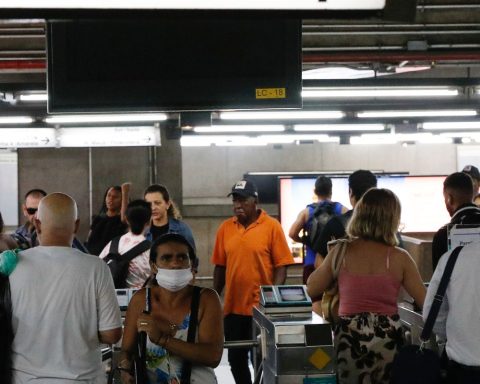The Ministry of Health (Minsa) will install vaccination posts against covid-19 at borders and airports, and will keep searching, house to house, for people who have not yet completed their immunization and reinforcement schedule, in an attempt to achieve a higher level of community protection. However, along with these initiatives, the promotion of agglomerations that facilitate the appearance of variants such as omicron continues.
“That double behavior, which on the one hand you are preventing and on the other, you are contagious, it is very difficult to know who wins. The crowds win more than the vaccinated, because they have to wait until they have the second or third dose or booster (to be protected), on the other hand, the crowds can occur at any time “, expressed the epidemiologist Leonel Argüello.
This Monday, Vice President Rosario Murillo announced a series of actions that the Minsa will implement, and which she called part of a “strategy” against the coronavirus, but there is no type of official document that is public and that reflects this strategy.
The Minsa will request the vaccination card for people who undergo scheduled surgical procedures, will also promote “voluntary” vaccination in all Health programs and will coordinate immunization against the pandemic in State institutions and companies with a large number of workers, such as free zones, universities, technical institutes and others, said Murillo.
The Ortega regime expedited the vaccination two weeks before the general votes, – in which Daniel Ortega and Rosario Murillo guaranteed their permanence in power for five more years, as a result of a process without political competition and without minimum democratic guarantees. The arrival of purchased and donated sera made it easier for Minsa brigades to start vaccinating house to house, as they have historically done to control other diseases and epidemics. Health authorities will also continue to vaccinate in hospitals – where before they centralized immunization days generating huge lines – in health centers, health posts, markets and fairs.
In this way, the country went in almost two months from less than 10% to 40% of the population with two doses, according to the Pan American Health Organization (PAHO). However, the Government ensures that it has covered 77% of the population two years and older, including pregnant, postpartum and lactating women.
Dr. Argüello explained that the control of the population with incomplete vaccination schedules is done through health centers, which must maintain a registry. Likewise, when the brigade arrives at the house, they ask for the immunization card, and if they do not have it, the person is inoculated. “You can identify those who are not vaccinated,” Argüello said.
For the Salvadoran epidemiologist Alfonso Rosales, the management that the Minsa is doing is the “appropriate”, especially, after the appearance and rapid spread of the omicron variant, which is considered more contagious with respect to the other variables, although it seems to be less virulent.
Both epidemiologists agree on the need to speed up vaccination against SARS-CoV-2. Rosales explains that before the arrival of omicron, what must be done is “to protect the Health system, and the protection is done by preventing people from being hospitalized, using the Intensive Care Units and ending up dying. The best intervention so far of what is being seen with this new variant is that vaccination should be accelerated as much as possible ”, express.
Risk of appearance of new variants
But at the same time, this must be accompanied by the application of biosafety measures that do not affect the population. The problem is that, in practice, in Nicaragua these measures are not complied with, and there are no restrictions for carrying out massive activities, which are one of the main risks for the appearance of mutations.
Argüello recalled that although the omicron variant of concern seems to generate mild disease, to the extent that there are more infections, there are more possibilities of complications and deaths -from the numerical perspective-. “We Nicaraguans are ourselves when we participate in agglomerations, we become more infected and produce variants, therefore, another danger of this variant is that as more cases occur, in turn, it may produce another variant,” he said.
“If you gather crowds, plus all the festive Christmas and early-year activities, plus the fact that the omicron is more transmissible, there is no doubt that we are going to have a third wave,” said Argüello. To this is added that in November, PAHO confirmed that the other four variants of concern circulate in Nicaragua, delta being the predominant one.
New global vaccination goal
The director general of the World Health Organization (WHO), Tedros Adhanom, lamented that the goal of vaccinating 40% of the world’s population by the end of 2021 was not achieved. A group of 92 member countries out of 194 missed the 40% target, it said Wednesday.
“This is due to a combination of limited supply that goes to low-income countries for most of the year and then subsequent vaccines arrive near their expiration and without key parts, such as syringes,” he told a conference.
The new goal proposed by Adhanom for countries is to immunize 70% of the population by mid-2022.
Government statistics indicate that Nicaragua has covered 70% of the population against the coronavirus -without determining how many correspond to the first dose, two doses and single doses-, after eight months of delay and being at the tail end of immunization on the continent. For Dr. Rosales, the data can be credible, because in Latin America there is a vaccination structure on which these new days against the pandemic are developed.
The country has accumulated 14.4 million doses, and according to PAHO, 7.3 million doses of seven different sera have been applied for nine months.








